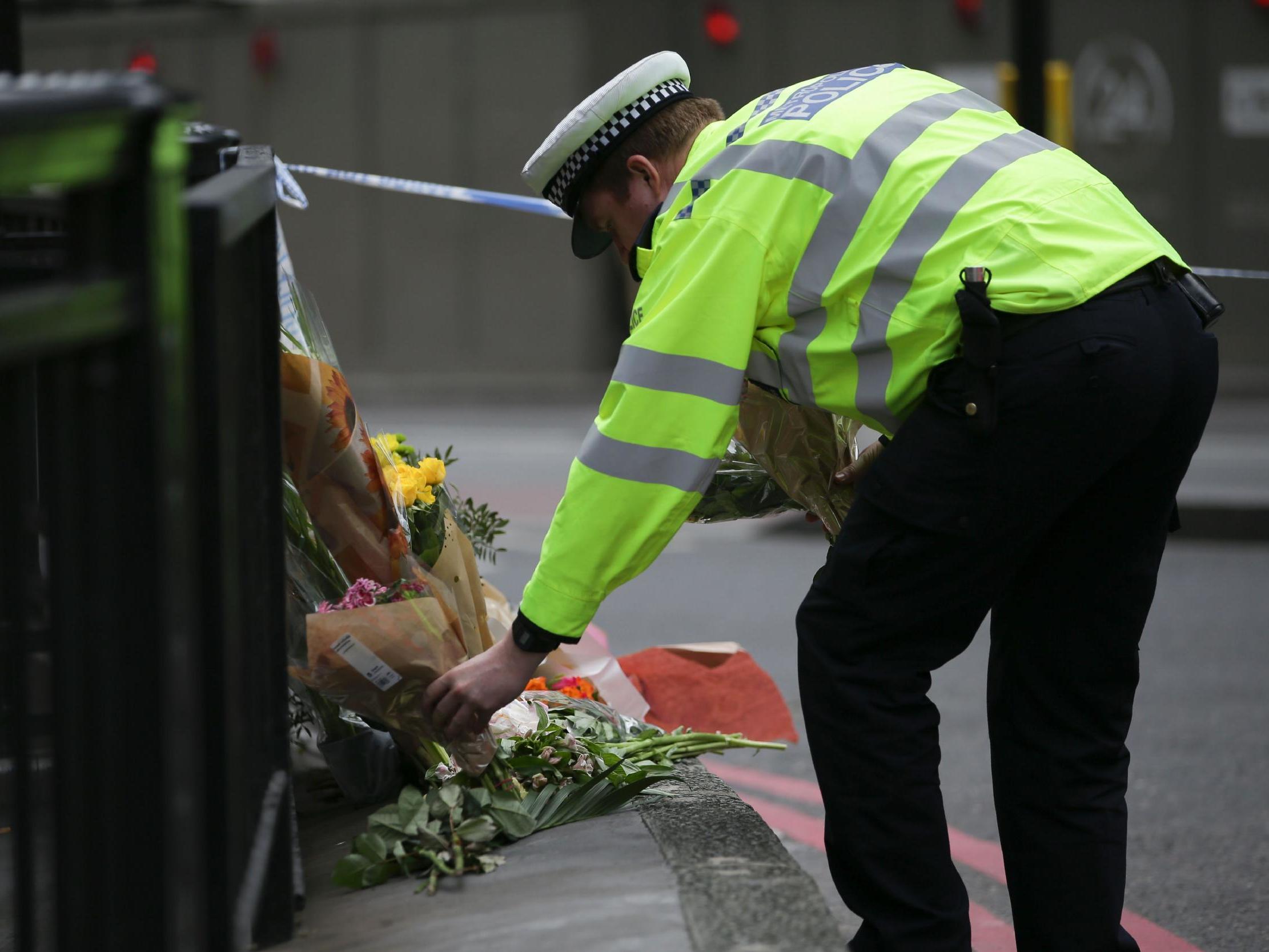Police officers suffering PTSD on 'alarming' scale, study finds
Experts warn of ‘clinical and public sector crisis’ as almost one in five suffering from medical condition

Your support helps us to tell the story
From reproductive rights to climate change to Big Tech, The Independent is on the ground when the story is developing. Whether it's investigating the financials of Elon Musk's pro-Trump PAC or producing our latest documentary, 'The A Word', which shines a light on the American women fighting for reproductive rights, we know how important it is to parse out the facts from the messaging.
At such a critical moment in US history, we need reporters on the ground. Your donation allows us to keep sending journalists to speak to both sides of the story.
The Independent is trusted by Americans across the entire political spectrum. And unlike many other quality news outlets, we choose not to lock Americans out of our reporting and analysis with paywalls. We believe quality journalism should be available to everyone, paid for by those who can afford it.
Your support makes all the difference.Post-traumatic stress disorder (PTSD) among police officers is reaching “crisis” levels with almost one in five suffering from the medical condition, a landmark study suggests.
Experts have warned of a “clinical and public sector crisis” after a survey of about 17,000 serving officers and operational staff indicated rates of PTSD were nearly five times higher than the wider population.
Two thirds of those suffering from the disorder were unaware, the research, led by a team at the University of Cambridge, also suggested.
Campaigners have called for a national policing mental health strategy to be drawn up, warning that there is currently a “post code lottery” in support.
Dr Jess Miller, a sociologist who led the research, said the levels of PTSD the study uncovered were “alarming” and warned a “stiff upper lip attitude” was inappropriate for modern policing.
She said: “For the first time in the UK we can see behind the cultural trope of the burnt-out copper who has seen too much. This is a clinical and public sector crisis. Dealing with disturbing experiences is a defining part of policing, but employees have a right to expect resources to protect them from the impact of daily trauma exposure.
“Without such resources in place, the cost to policing and public safety will just mount up.”
Serving officers across all ranks throughout the UK and operational staff, such as emergency call operators and digital image specialists, took part in the survey.
Carried out across England, Wales, Scotland and Northern Ireland during autumn last year, it found 90 per cent of police workers had been exposed to trauma.
One in five of those officers and staff reported experiencing either PTSD or complex PTSD, a more severe form of the disorder, in the four weeks prior to being surveyed.
Dr Miller said: “Over half of our respondents said they had insufficient time to process incidents before being sent back out on the next call.
“A stiff upper lip attitude will not work in contemporary policing.
“Without decent interventions and monitoring for trauma impact, and a national conversation involving the Home Office and Department of Health, the alarming levels of PTSD our study has uncovered will stay the same.”
Police Care UK, a charity supporting the police and their families, has called for a national policing mental health strategy to be put in place.
The charity’s chief executive, Gill Scott-Moore, said: “There is no comprehensive strategy to tackle the issue of mental health in policing, and that has to change.
“The service has real challenges around recognising and responding to the signs and symptoms of trauma exposure and is heavily reliant upon generic NHS provision that isn’t equipped for the specialist treatment needed.”
Press Association contributed to this report.
Join our commenting forum
Join thought-provoking conversations, follow other Independent readers and see their replies
Comments